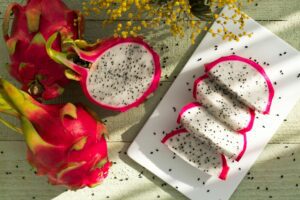The Role of Antioxidants in Fighting Disease and Supporting Overall Health

Introduction to Antioxidants
Antioxidants have gained significant attention in recent years for their potential health benefits. But what exactly are antioxidants? These are molecules that help prevent or slow down damage to cells caused by free radicals, unstable molecules produced by the body as a reaction to environmental and other pressures. Free radicals can lead to oxidative stress, which is linked to various diseases and aging processes.
How Antioxidants Work
Oxidative stress occurs when there’s an imbalance between the production of free radicals and the body’s ability to neutralize them with antioxidants. Antioxidants work by donating electrons to neutralize free radicals, thereby reducing their harmful effects on cells and tissues.
Types of Antioxidants
Antioxidants can be either naturally occurring or synthetic. Natural antioxidants are found in abundance in certain foods, while synthetic antioxidants are often used as food additives. Common types of antioxidants include vitamins C and E, beta-carotene, selenium, and flavonoids.

Food Sources of Antioxidants
Consuming a diet rich in fruits, vegetables, nuts, and seeds is the best way to obtain antioxidants. Berries, leafy greens, citrus fruits, and nuts are particularly high in antioxidants. Other dietary sources include whole grains, legumes, and certain herbs and spices.
Antioxidants and Disease Prevention
Numerous studies have demonstrated the role of antioxidants in reducing the risk of chronic diseases such as heart disease, cancer, and diabetes. Antioxidants help protect cells from damage, reduce inflammation, and support overall health.
Antioxidants and Aging
Oxidative stress is believed to contribute to the aging process by damaging cells and DNA. Antioxidants may help slow down aging by neutralizing free radicals and reducing oxidative damage to tissues and organs.
Supplements vs. Whole Foods
While antioxidant supplements are available, they may not provide the same benefits as antioxidants obtained from whole foods. Whole foods contain a complex mixture of nutrients and phytochemicals that work synergistically to promote health.
Antioxidants and Immune System
Antioxidants play a crucial role in supporting the immune system by reducing inflammation and enhancing immune function. A diet rich in antioxidants can help protect against infections and promote overall well-being.
Antioxidants and Heart Health
Studies suggest that antioxidants may help reduce the risk of heart disease by improving blood vessel function, lowering blood pressure, and reducing cholesterol levels. Antioxidant-rich foods such as berries, nuts, and dark chocolate are beneficial for heart health.
Antioxidants and Brain Health
Antioxidants have been shown to protect brain cells from oxidative damage and may help prevent cognitive decline and neurodegenerative diseases such as Alzheimer’s and Parkinson’s. Including antioxidant-rich foods in the diet is essential for maintaining brain health.
Antioxidants and Skin Health
Antioxidants play a vital role in protecting the skin from damage caused by UV radiation, pollution, and other environmental factors. They help reduce inflammation, promote collagen production, and prevent premature aging of the skin.
Antioxidants and Cancer Prevention
Research suggests that antioxidants may help reduce the risk of certain types of cancer by neutralizing free radicals and inhibiting the growth of cancer cells. However, more studies are needed to fully understand the role of antioxidants in cancer prevention and treatment.

Optimizing Antioxidant Intake
To maximize the benefits of antioxidants, it’s important to consume a varied diet rich in colorful fruits, vegetables, nuts, and seeds. Aim for at least five servings of fruits and vegetables per day and include a variety of antioxidant-rich foods in your meals.
Potential Risks and Precautions
While antioxidants offer numerous health benefits, excessive intake of antioxidant supplements may have adverse effects and could potentially interfere with certain medications or medical conditions. It’s essential to consult with a healthcare professional before starting any new supplement regimen.

Conclusion
In conclusion, antioxidants play a crucial role in fighting disease and supporting overall health. By incorporating antioxidant-rich foods into your diet, you can help protect your cells from damage, reduce the risk of chronic diseases, and promote longevity and vitality.
Unique FAQs:
- Are antioxidant supplements necessary if I eat a healthy diet?
-
- While a healthy diet rich in fruits, vegetables, and other antioxidant-rich foods provides ample antioxidants, some individuals may benefit from supplements, especially if they have specific health concerns or dietary restrictions.
- Can antioxidants reverse the aging process?
-
- While antioxidants can help slow down the aging process by reducing oxidative damage to cells and tissues, they cannot reverse aging entirely. However, they can support overall health and vitality as you age.
- Are there any side effects of consuming too many antioxidants?
-
- Excessive intake of antioxidant supplements may lead to adverse effects such as digestive issues, headaches, and interactions with medications. It’s essential to consume antioxidants in moderation and obtain them primarily from whole foods.
- Which antioxidant-rich foods are best for skin health?
-
- Foods rich in vitamins C and E, beta-carotene, and polyphenols are particularly beneficial for skin health. Berries, citrus fruits, nuts, seeds, and leafy greens are excellent choices for promoting radiant and youthful-looking skin.
- Can antioxidants prevent all types of cancer?
-
- While antioxidants have shown promise in reducing the risk of certain cancers, they may not prevent all types of cancer. Cancer development is influenced by various factors, including genetics, lifestyle, and environmental exposures.





It is the best time to make a few plans for the long run and it’s
time to be happy. I have learn this post and if I could I
want to recommend you few fascinating things or advice.
Perhaps you could write next articles referring to this
article. I wish to read more issues approximately it!